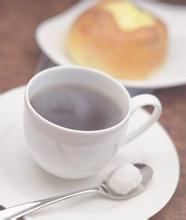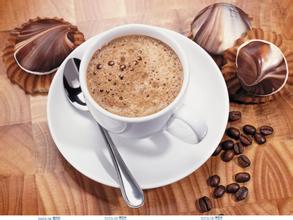Guatemala Coffee Produced by Washing Process
The average elevation of dangerous countries is high, with coffee belts distributed above 1500 meters and between 14 and 16 degrees north latitude, it is the easiest to grow extremely hard beans, all of which are washed, of which 45% belong to fine grade, the proportion is quite high, and there are also a small amount of Robusta.
Dangerous coffee varieties are mainly bourbon, Tibika, Kaduai, Kaddura, there are also a small number of yellow bourbon, Rosa and Pacamara, the variety is quite diverse, but it is also commendable to retain the ancient Tibica and bourbon.
Guatemalan coffee producing area
The Guatemalan Cafe Garden at the foot of the volcano
The Guatemalan Cafe Garden at the foot of the volcano
Guatemala is bordered by Mexico to the north, Honduras and El Salvador to the south, the Caribbean to the east and the Pacific Ocean to the west, with tropical rain forests, volcanic geology, plateau valleys and changeable microclimate. Guatemalan coffee once enjoyed a reputation as the best quality coffee in the world. The extra-hard coffee beans here are full-grained, delicious and balanced, and the coffee made with it is pure and rich.
There are few places in the world that offer a variety of high-quality coffee beans like those produced in Guatemala. The excellent quality of Guatemalan coffee beans is due to the unique conditions of their producing areas, including different climate change in each region, rich soil formed by volcanoes, abundant natural water resources, high-altitude mountains and shady and moist forests.
Guatemala has seven major coffee producing areas: Antigua,Coban,Atitlan,Huehuetenango,Fraijanes,Oriente and San Marcos.
The coffee beans in each producing area have their own characteristics, and they have won a lot of praise for Guatemala in the international community, especially the perfect harmony of Antigua's sour, sweet and mellow texture; add a touch of smoke and emphasize its mystery, and you will have a reason not to look for substitutes everywhere after tasting

Important Notice :
前街咖啡 FrontStreet Coffee has moved to new addredd:
FrontStreet Coffee Address: 315,Donghua East Road,GuangZhou
Tel:020 38364473
- Prev

Introduction of rich fragrant Kenyan coffee beans
PB (Peaberry round beans) is special. Round beans (PB) are usually produced at the end of coffee trees that bloom too late or too early. Because the yield is rare, accounting for only 10% of the output, the round beans produced by the same coffee tree are more expensive than other flat beans (Flat Bean). When the round beans are specially collected together, the defective beans will be removed, the proportion of defects will be reduced, and the particles will be more consistent.
- Next

There are excellent natural conditions for coffee trees in Papua New Guinea.
Papua New Guinea has a detached and primitive natural environment and its land is vast and fertile. Its unique volcanic rock soil and abundant rainfall create excellent natural conditions for the growth of coffee. The top coffee beans in Papua New Guinea are as beautiful and precious as the country's national bird of paradise. Coffee is widely grown in the country at an altitude of 1300 to 1800 meters above sea level.
Related
- Does Rose Summer choose Blue, Green or Red? Detailed explanation of Rose Summer Coffee plots and Classification in Panamanian Jade Manor
- What is the difference between the origin, producing area, processing plant, cooperative and manor of coffee beans?
- How fine does the espresso powder fit? how to grind the espresso?
- Sca coffee roasting degree color card coffee roasting degree 8 roasting color values what do you mean?
- The practice of lattes: how to make lattes at home
- Introduction to Indonesian Fine Coffee beans-- Java Coffee producing area of Indonesian Arabica Coffee
- How much will the flavor of light and medium roasted rose summer be expressed? What baking level is rose summer suitable for?
- Introduction to the characteristics of washing, sun-drying or wet-planing coffee commonly used in Mantenin, Indonesia
- Price characteristics of Arabica Coffee Bean Starbucks introduction to Manning Coffee Bean Taste producing area Variety Manor
- What is the authentic Yega flavor? What are the flavor characteristics of the really excellent Yejasuffi coffee beans?

